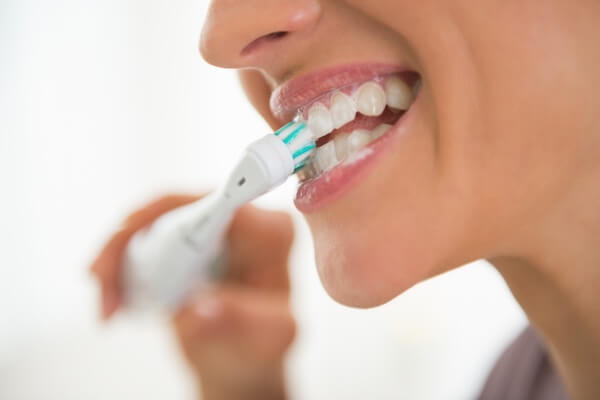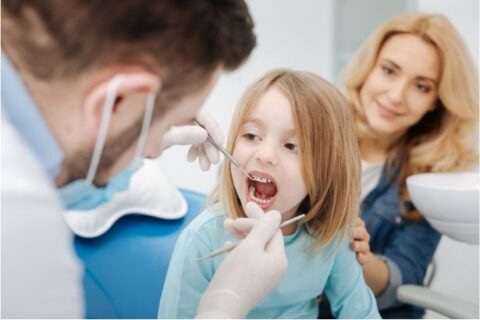Oral Hygiene & Your Overall Health
Dental Health and Overall Health Are More Connected Than You Think
BHA dentists and their assistants strive to share the vital connection between dental health and overall health with their patients in Brevard County. Oral health can affect a person’s overall health. Our dentists are trained to look for connections between certain health concerns and current dental health.
Our mouths ideally contain a balance of good and bad bacteria. Sticking to a dentist-recommended dental hygiene routine can help regulate bacteria growth. When our body’s natural defense system gets a boost from regular brushing and flossing, it usually enables us to combat tooth decay, gum disease, and oral infections.
Healthy Mouths Help Maintain Healthy Bodies
Mouths have a natural cleansing mechanism in place but need our help to properly get rid of excess bacteria. Saliva works hard to wash away leftover food particles and neutralize the acids left behind by bacteria. Unfortunately, there are a variety of health conditions and medications that may impair saliva flow. Some antihistamines and anti-depressants can leave the mouth vulnerable to bacteria. People dealing with dry mouth must take extra care in their oral health care. If bacteria builds up under the gums, the resulting gum disease and potential for infection put the heart at risk and may increase the chance of stroke. If this oral bacteria reaches the bloodstream, it is often transported to the lining of the heart, causing endocarditis.
Overall Health and Its Impact on Oral Health
Diabetes makes it difficult for the body to fight infection, so diabetics are more susceptible to the effects of gum disease. Gum disease also affects the body’s ability to control blood sugar levels, so regular dental care that keeps bacteria at bay is important for diabetics. Osteoporosis causes bone loss, which can affect the jaw bone and ultimately cause tooth loss. BHA’s dentists will gladly discuss how any health conditions may impact oral health and vice versa.
How Can I Protect My Dental Health?
Protecting dental health begins with diligent oral care at home and the dentist’s office. Brushing, flossing, and rinsing with fluoride-based products is a great start.
- Stick to a Dentist Recommended Dental Hygiene Routine
Battling tooth decay begins with a soft-bristled toothbrush. Brush at least twice a day with an ADA approved fluoride toothpaste. Be gentle on the gums as aggressive brushing can cause gum recession. Use dental floss or flossers at least once a day to remove particles from hard to reach areas between the teeth. Floss is essential for removing plaque from under the gum line before calcification happens. Fluoridated and antimicrobial mouthwashes help clear any leftover food particles while neutralizing or killing bacteria. - Fluoride is Still the Best Option
Fluoridated drinking water is an asset to dental health. Fluoride is a natural mineral that aids in the remineralization of tooth enamel. It also disrupts the bacteria’s life cycle, so effectively neutralizes any bacteria left behind after brushing. As lost minerals are replaced, mild tooth decay can be reversed in some cases. Armed with your soft bristled-toothbrush, fluoridated toothpaste and mouthwash, and dental floss, you have what you need to protect your teeth and gums. - Supplement with Xylitol for Added Protection
Fluoride makes the news occasionally, but we rarely hear about Xylitol. Fluoride and Xylitol work most effectively when used together as key components of your dental hygiene routine. Xylitol is a natural product that was used as a sugar substitute in Europe during World War II. When brushing is not possible after meals, using sugarless gum or candies with Xylitol can help combat lingering bacteria. This particular natural sweetener is indigestible to the bacteria, so the bacteria cannot leave acid in their wake. Plus, saliva production gets a boost to add another layer of protection. - Should I Go With a Prescription Mouthwash?
Depending on your dental history and current treatment plan, your BHA dental team may recommend a prescription strength antimicrobial mouthwash. It is common to use the special mouthwash after deep cleanings and certain dental procedures in an effort to eliminate bacteria. Swollen and irritated gums often benefit from the use of prescription mouthwash.
Brevard Health Alliance encourages you to learn more about the link between dental health and overall health and what you can do about it. Give us a call to get your dental health back on the right track.
































































































































